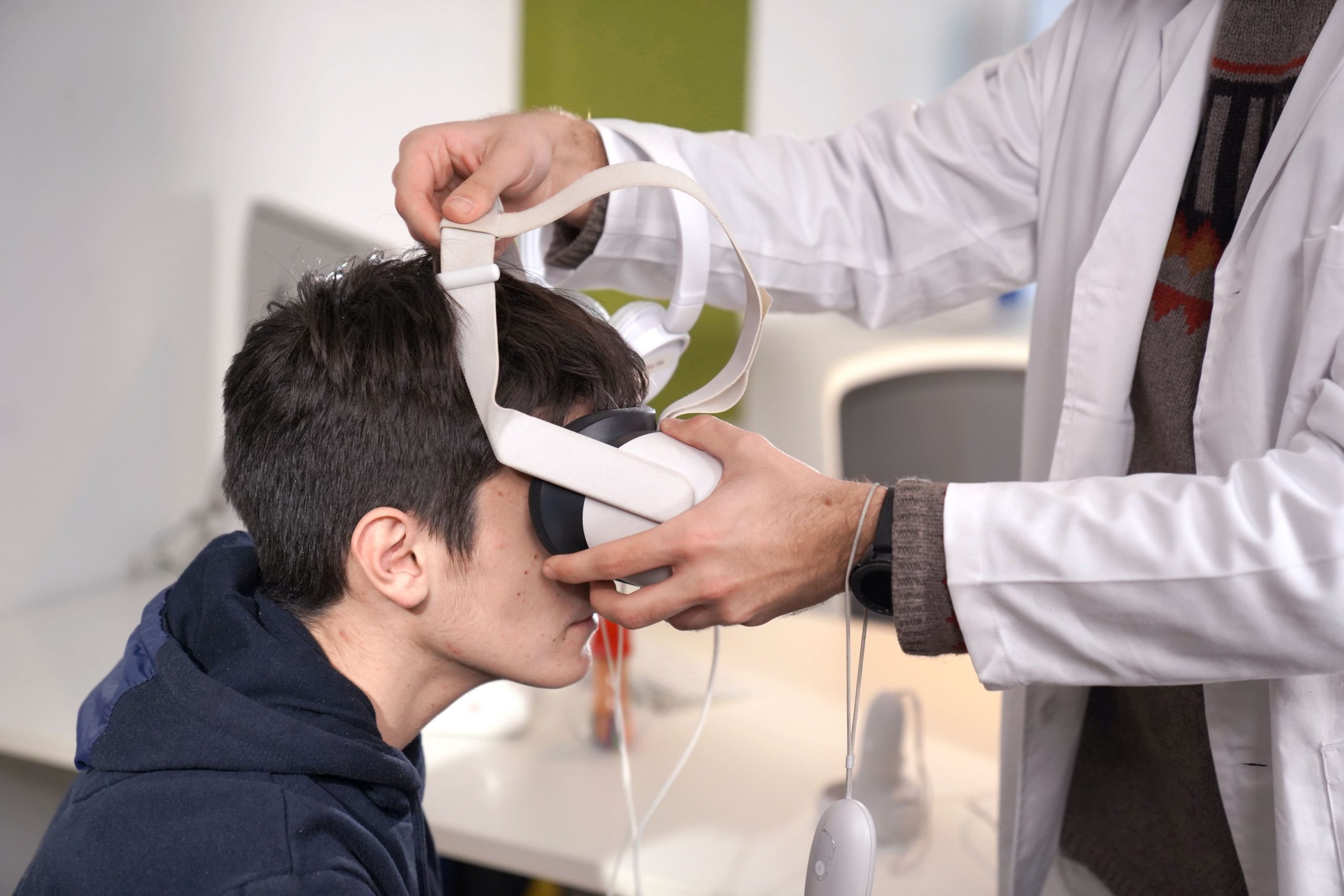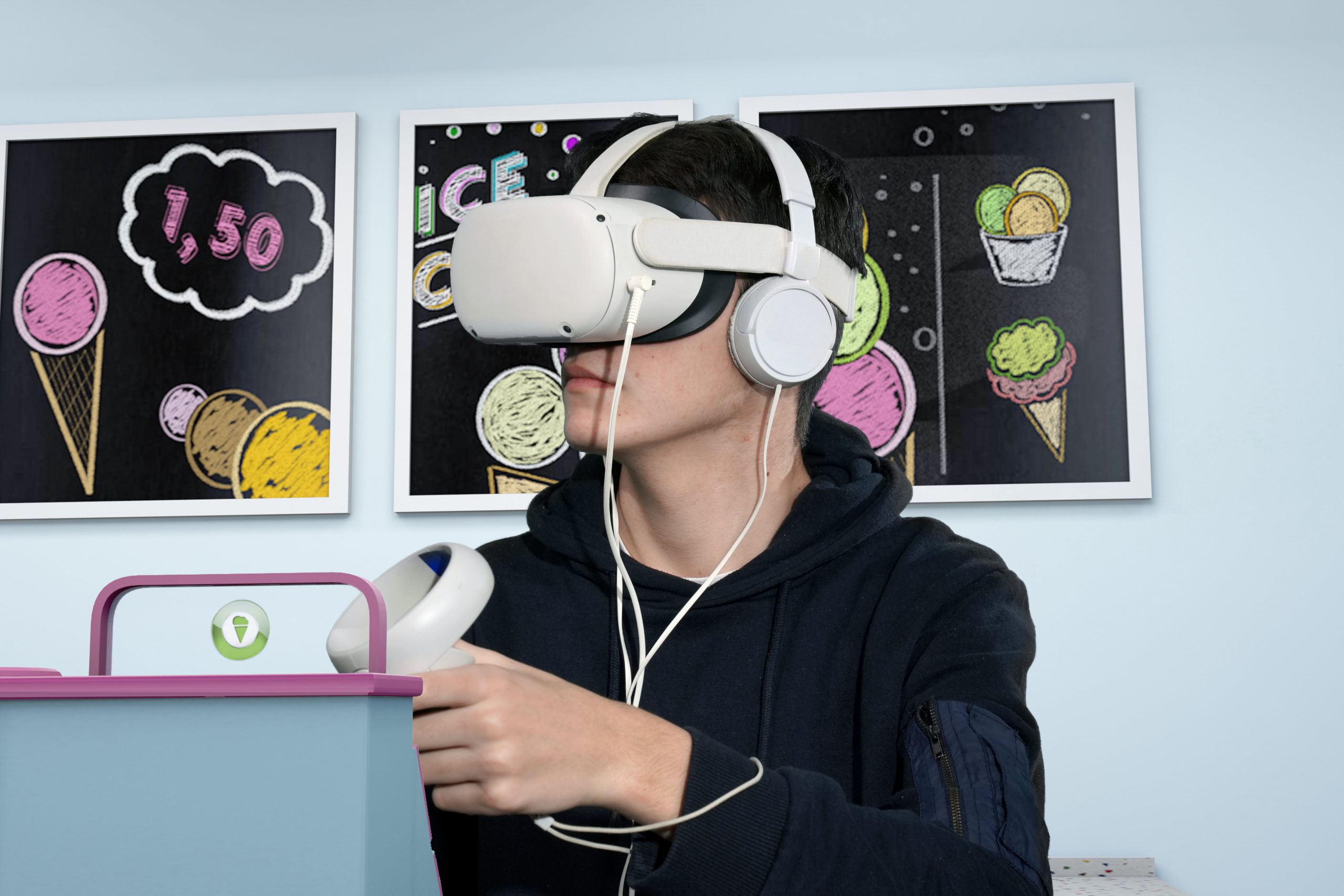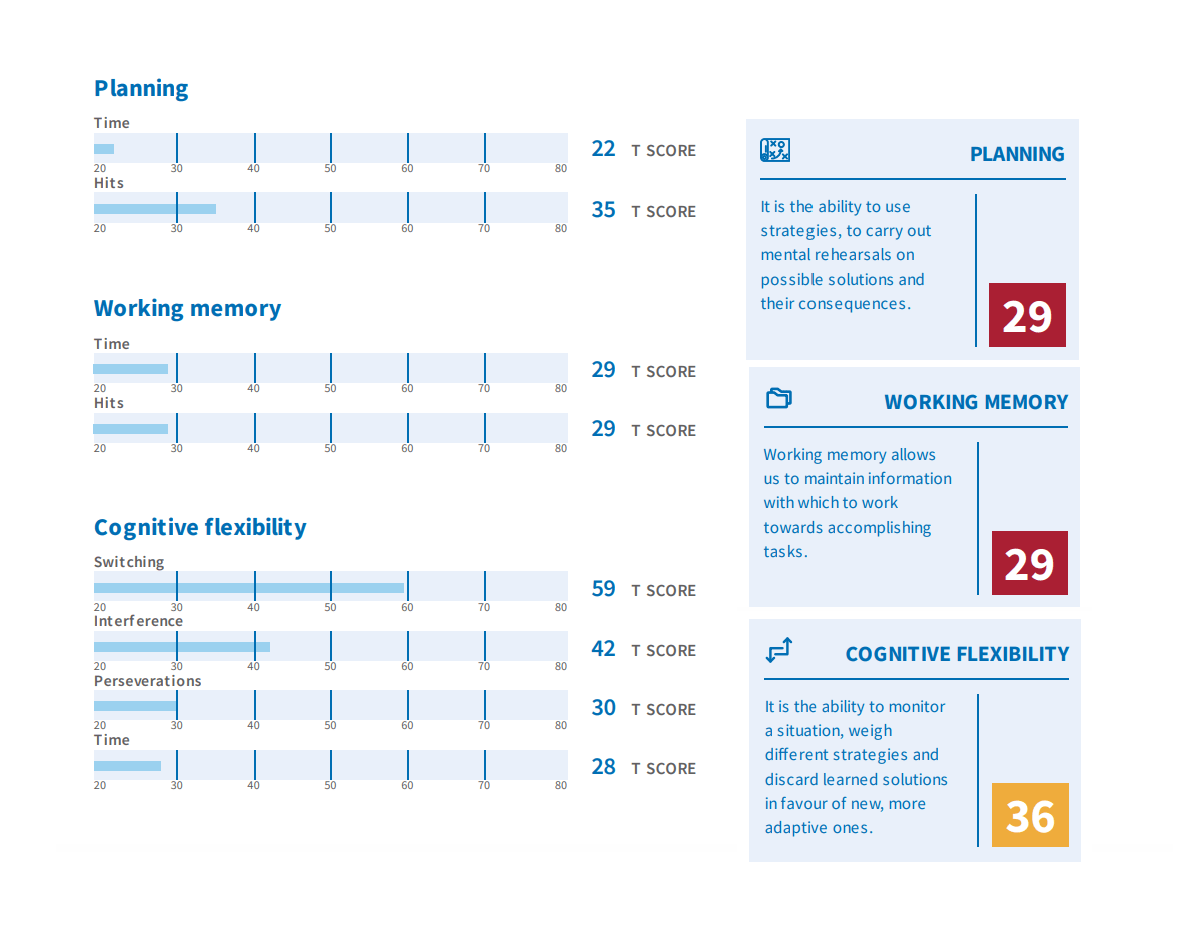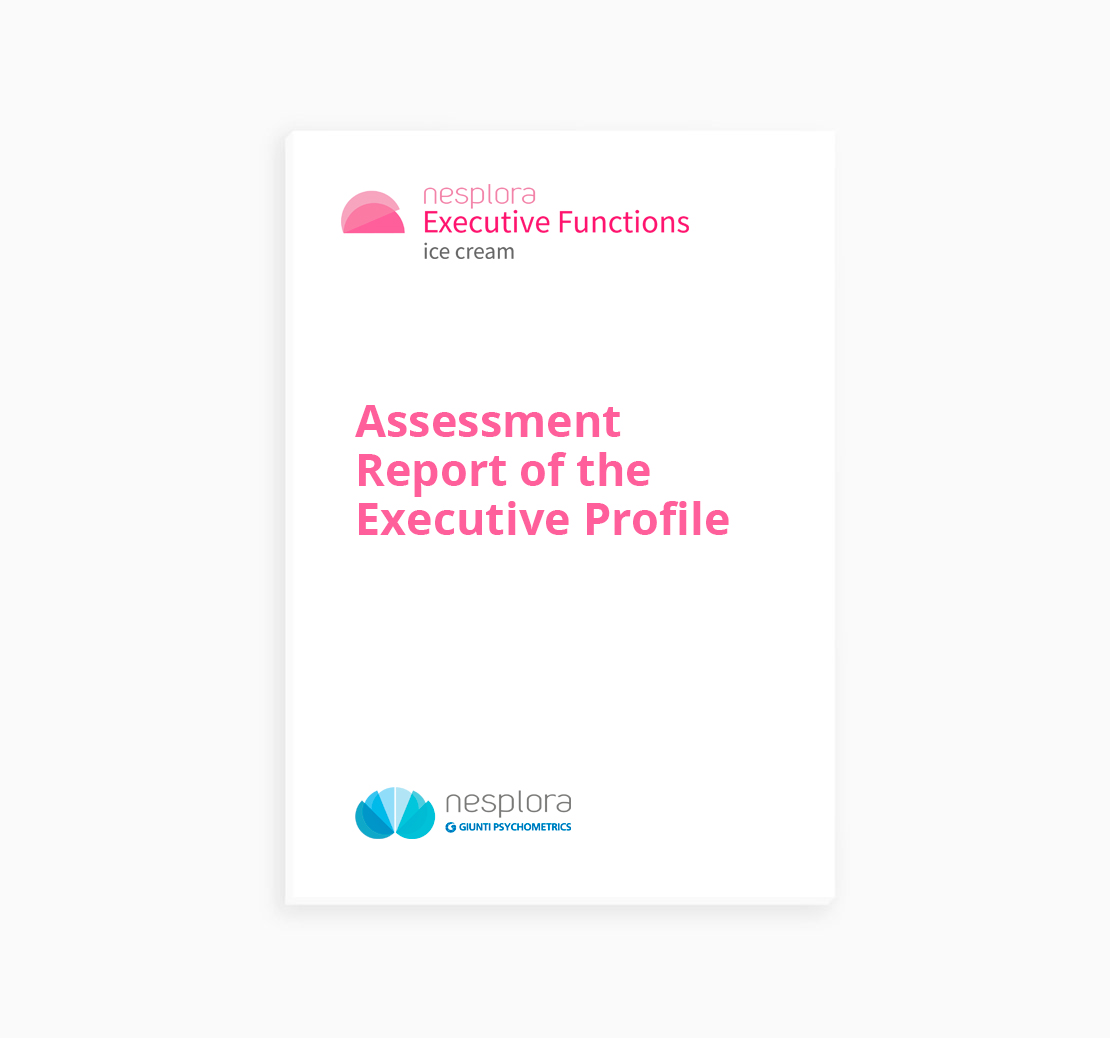Technical Sheet
ORIENTED TO
Neuropsychological assessment in virtual reality
Level B
DURATION
24-32 min
REPORT
Inmediate
Online correction
NORMATIVE
1240 people
AGE RANGE
8 to 80 years old
LANGUAGES
Spanish, English, Portuguese-BR, Italian, French, German, Greek, Russian and Turkish
LICENSE
Included
The test is designed to assess executive functions in people over 8 years of age.
This test assesses the different components of executive functions and learning, providing useful information for the diagnosis of dysexecutive syndromes and pathologies with frontal involvement.



Variables evaluated:
Planning
This index records the ability to use strategies to solve problems, sequence, abstract, decompose a global problem into partial ones, and solve problems appropriate to the achievement of a goal. It is the ability to carry out mental rehearsals of possible solutions and their consequences before trying them to solve a problem.
Working memory
The ability to record, encode, maintain and manipulate information.
Processing speed
The speed at which information is grasped, understood and begun to be responded to.
Cognitive flexibility
Our brain's ability to adapt our behaviour and thinking to new, changing or unexpected situations.
The Test:
Ecological environment
The test recreates a realistic multi-tasking environment based on the premise “It’s your first day on the job at the ice cream shop”*. A set of rules must be taken into account and objectives must be met that are true to the challenges of everyday life. The ecological validity of this test makes it possible to measure EEFF, maximising the predictive value of the real functional performance of the person being assessed.
Assessment and application
Executive functions are compromised, among others, in the presence of neurodevelopmental and dysexecutive disorders, dementia, substance abuse, or brain damage. Having the accuracy of Nesplora Ice Cream is a great support for diagnosis and treatment monitoring, as well as for learning and decision making assessment.
Advantages
The report is available instantly and can provide differences compared to other tests, it is more ecological and faster than other batteries, has no evaluator or cultural bias and allows to assess the processing of the executive function as it happens in the everyday environment. Soon, it will include a measure of learning potential.
Normative studies
A total of 1240 people have been evaluated for the normative study in Spain by Nesplora or its collaborators. They have received training prior to the evaluation of Nesplora ICE CREAM and other complementary measures. Nesplora ICE CREAM produces more than 1867 variables with the information generated in the evaluation. Of all these variables, a total of 1055 have been selected for the clinical report. This selection was based on clinical criteria and ease of interpretation. The rest of the variables may be used in the future either to prepare other types of reports or to complement the existing clinical report.
The aim of the Nesplora ICE CREAM normative study was to identify the different groups in the sample based on the scores obtained in the execution of this test, and to establish the normality curve for each of them. To carry out this normative study, data from 1240 subjects were initially analyzed and 6 age groups were identified to obtain the scales.
No differences were found between men and women in the variables analyzed. The extraction of these groups and the differences by sex are compatible with previous findings in the literature.
The variables in the study do not present normality, so it has been decided to use nonparametric techniques that allow comparing or hypotheticalizing non-normalized variables. Different groups of subjects in terms of age and by subtest have been found and these have been contrasted.
Although ceiling and floor effects are obtained in some variables in the performance of the subjects, it is considered that the priority of the test is the detection of subjects with some dysfunction in the cognitive domains measured. Therefore, these effects are irrelevant.
Overall, with the data presented, it is concluded that the variables define the constructs well and determine in an excellent way the validity and reliability of the scales of the test.
In subsequent studies, the country scale will be expanded, new variables defining other constructs will be incorporated from the data obtained, and these variables and constructs will be correlated with other tests that exist on the market. The purpose will be to complete the holistic view of the constructs.
Get to know the report in detail:
View and download an example of the report you get automatically after an evaluation using Nesplora Executive Functions Ice Cream.
